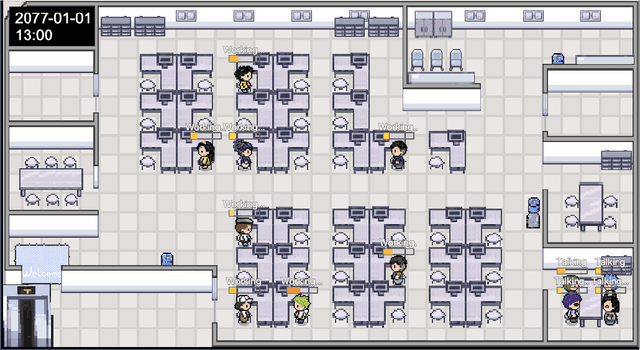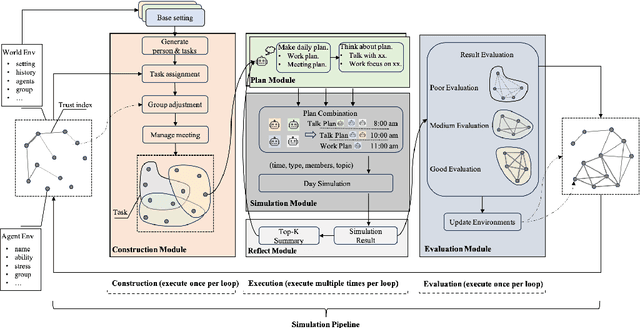Generative Organizational Behavior Simulation using Large Language Model based Autonomous Agents: A Holacracy Perspective
Paper and Code
Aug 05, 2024



In this paper, we present the technical details and periodic findings of our project, CareerAgent, which aims to build a generative simulation framework for a Holacracy organization using Large Language Model-based Autonomous Agents. Specifically, the simulation framework includes three phases: construction, execution, and evaluation, and it incorporates basic characteristics of individuals, organizations, tasks, and meetings. Through our simulation, we obtained several interesting findings. At the organizational level, an increase in the average values of management competence and functional competence can reduce overall members' stress levels, but it negatively impacts deeper organizational performance measures such as average task completion. At the individual level, both competences can improve members' work performance. From the analysis of social networks, we found that highly competent members selectively participate in certain tasks and take on more responsibilities. Over time, small sub-communities form around these highly competent members within the holacracy. These findings contribute theoretically to the study of organizational science and provide practical insights for managers to understand the organization dynamics.
 Add to Chrome
Add to Chrome Add to Firefox
Add to Firefox Add to Edge
Add to Edge